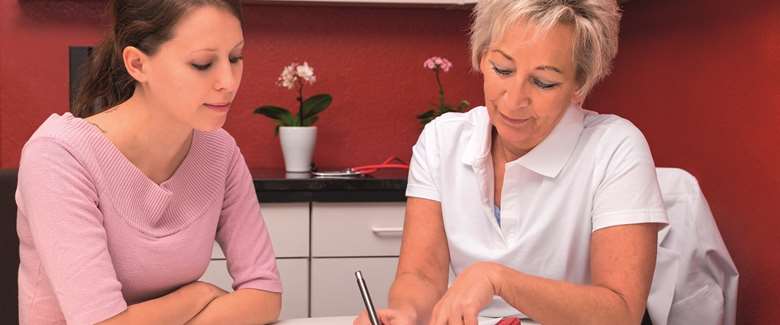Inside the British Association of Performing Arts Medicine
Monday, November 2, 2020
Coriander Stuttard goes behind the scenes at BAPAM, the umbrella organisation for performing arts medicine

As performing artists we are constantly reminded how important our bodies are to our profession, both physically and mentally. Without them functioning to their full capability, it becomes difficult, painful and unproductive for us to carry on and the implications can be huge. But when problems do crop up – and it happens to everyone at one time or another – where does one start in finding the right people to turn to? Having spent the past months meeting practitioners with different areas of expertise, offering different holistic ways of helping performing arts professionals, I am concluding by turning the spotlight on the umbrella organisation that really is the go-to point: the British Association for Performing Arts Medicine (BAPAM).
The first musicians’ clinic was established in 1984 at the Royal Free Hospital in London by the late Ian James, a consultant pharmacologist with a strong interest in the health of musicians, and particularly the relationship between performance anxiety and physical problems. The research trust which he helped to establish grew into what is now the charity BAPAM. In turn, this has grown to serve all musicians, actors and dancers and it has also extended its range of services.
Dan Hayhurst, information officer at BAPAM, explains that the charity is there to offer expert, career-specific health advice at its clinics for anyone who derives an income from an arts career. He explains how it works in practical terms. ‘You do need to register, which is free and confidential. Our helpline staff will work out the most appropriate way we can help you. That might mean booking a free appointment at a BAPAM clinic to see a doctor (including specialist consultants like hand surgeons and rheumatologists), physiotherapist or osteopath, or it may be that the best source of help would be from an NHS service or a health care practitioner working independently. Our team are skilled at identifying care pathways and suggesting a variety of options. Our service is mainly advisory – we give you an expert assessment from a medical professional who understands the pressures of a career in music, and a plan to overcome the problem.’
Being a small charity, the team of people working at BAPAM offer bespoke advice. They consider each situation practically, sometimes offering a specific therapist or at other times pointing you towards a range of options from their extensive directory. ‘Some of the practitioners in our directory have very specific expertise,’ Hayhurst explains. ‘If you’re a clarinet player with jaw pain looking for a physiotherapist we could name an individual, but if you come to us looking for a psychotherapist specialising in performance anxiety, we’d be more likely to say have a look at the directory, call people, and see if you can find someone you feel is going to be a good fit for you. Of course we’re always happy to make suggestions, but sometimes it’s better for people to make their own decision. We’ll always offer you a free appointment at BAPAM if you want to talk through options with a doctor, and they may have colleagues in the NHS with specific expertise, or have a particular idea about a practitioner in the directory with the most relevant experience.’
Sometimes it’s not always practical for performers to wait to have access to NHS appointments and fees become an issue when using private practitioners, but the charity works with a number of support organisations – Help Musicians UK (a major funder of BAPAM), The Royal Society of Musicians and the PRS Members Benevolent Fund – to see if patients can access financial support. Some members in the directory offer reduced rates to BAPAM clients.
As well as offering specific advice for the musician in need, BAPAM offers a range of events and talks aimed at healthcare practitioners, educators and performer support organisations, and the interested musician is welcome to attend. There are also lectures and workshops run by its practitioners that discuss how to avoid health problems and keep performing at your best. BAPAM will partner other organisations to run these, for example working with the Musicians’ Union in Scotland and London later this year and also going into conservatoires and music schools. The website is comprehensive and its news page is full of current trends and information for the working musician.
BAPAM helped establish the Performing Arts Medicine MSc at UCL which it now continues to support. Many of the BAPAM clinicians teach on the course; students come in to observe clinics and several alumni are now either helping BAPAM clinicians or are in the directory themselves. The practical ideas behind this investment for the future speak for themselves – it’s beneficial for everyone to have experts in training, ready and waiting for when patients might need them. And from the artists’ point of view, knowing who to trust or who to turn to is fundamental to maintaining a healthy career.